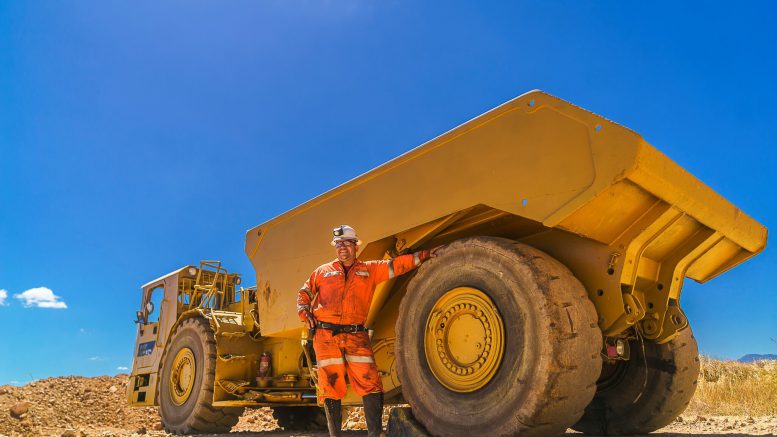Lundin-backed Bluestone Resources (TSXV: BSR) wants to advance its Cerro Blanco gold project under Guatemala’s incoming reform-minded president but it faces anti-mining activists who don’t play by the same rules.
The proposed US$572 million project near the border with El Salvador would produce 2.7 million oz. gold over 14 years, according to a feasibility study issued early last year.
Environmentalists claim Bluestone’s plan to move to an open pit operation from the underground concept it bought in 2017 from Goldcorp, now part of Newmont (TSX: NGT; NYSE: NEM), will pollute freshwater bodies Guatemala shares with El Salvador. These include the Güija lagoon as well as the Lempa river, the main water source for San Salvador, the Salvadoran capital.
“This potential open-pit, cyanide-leaching mining operation will put at risk of health and environmental harms not only communities in Asuncion Mita, but many more across the border and down river in El Salvador,” Washington, D.C.-based Rights Action wrote in a report in January. “The Cerro Blanco mine has been met with nothing but objections from the large majority of the surrounding populations.”
Those objections include what the group calls a legally-binding municipal vote in September last year that found 87% of locals against the mine. Bluestone says anti-mining groups from El Salvador orchestrated a poll that was forbidden by one court before it happened then quashed by another after it did.
“We’ve always had a strong social acceptance from the locals who are looking for the benefits of the project,” Bluestone president and CEO Peter Hemstead said by phone from Vancouver. “The question on the ballot was ‘do you want a mining project in the area that’s going to pollute your water?’ So, you know, we weren’t surprised by the result.”
Landslide victory
Meanwhile, a battle over polling on a higher level is being fought by the same courts that helped Bluestone. Guatemalan Attorney General Consuelo Porras is threatening to undo president-elect Bernardo Arévalo’s landslide victory in August before he can be sworn in on Jan. 14.
The United States, the Organization of American States and human rights groups have condemned the prosecutor’s actions. The U.S. has slapped visa restrictions on Porras and more than a dozen other officials for undermining democracy.
Arévalo campaigned against graft like many of his predecessors over the last 30 years since regular elections began to replace authoritarian rule. His Semilla (Spanish for seed) party is untested in government and will have just 23 of 160 seats in Congress. It means waiting to see its stance on mining and Bluestone’s application as the government ramps up, the CEO said.
“There’s some uncertainty there not only with respect to timelines, but just overall we’re dealing with a new party,” Hemstead said. “They will be interested in attracting foreign investment into the country. They are backed by the U.S. who are big supporters of the project. They see it as a key to building capacity in-country that will stop the flow of illegal immigration.”
Bluestone, which is 26% owned by the Lundin family trust, paid fellow Canadian miner Goldcorp $18 million plus shares valued at roughly 9.9% of Bluestone for Cerro Blanco. Goldcorp had built 3.4 km of underground works and drilled 43,000 metres.
Bluestone’s feasibility study proposed a three-stage development. Besides gold, it forecast output of 10.2 million oz. silver from processing 53.9 million tonnes of ore over the mine’s life. The project has an after-tax net present value of US$1.1 billion at a 5% discount rate and an internal rate of return of 30%.
Strategic review
The company considered exiting Cerro Blanco as recently as July when it conducted a strategic review. At one point it was mulling the acquisition of the Fenix nickel complex in Guatemala held by Swiss unlisted miner Solway. It canceled the idea after the U.S. sanctioned Solway’s local subsidiaries last year for alleged bribery. The U.S. removed the sanctions in September.
“We did not want to get in trouble with the U.S. government,” Hemstead said. “We were never seriously looking at them, barely even began to look at them.”
The Cerro Blanco project answers activist non-governmental organizations (NGOS) with environmental risk mitigation plans and a water treatment plant with third-party monitoring devoid of negative impacts for a decade, the CEO said. The company plans to spend US$40 million on dry stack tailings instead of conventional methods, plus US$30 million to maintain them.
“It hurt the economics but we did it because it’s the responsible thing to do,” Hemstead said. “This is the trouble in fighting NGOs, right? They’re not held to any level of accountability. They just tell whatever lie they want and play on people’s fears and then leave us to try and defend it and the defence is never an easy answer.”
With reporting from Thomas Collins, a freelance journalist based in London.
Clarification: An earlier version of this story stated capital spending would be US$750 million; that includes sustaining capital spending. Initial construction is estimated at US$572 million. No letter of intent was signed about Fenix, though Bluestone did express an interest it soon abandoned.


Be the first to comment on "Bluestone CEO grapples with activism in Guatemala as new president brings change"